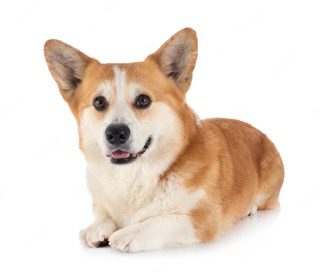
The Pembroke Welsh Corgi is a loyal and faithful dog breed originating in Wales. Historically, they were kept as working dogs on farms, primarily used for herding cattle and sheep. This breed is renowned for its low-set body that is straight and muscular when mature. They usually stand around 10-12 inches tall at the shoulder, and weigh up to 30 lbs. The breed is known for its long, thick coat that comes in a variety of colors. Common colors range from red, sable, fawn, black and tan, occasionally with white markings. The coat is thick and weatherproof, helping them acclimate to all types of climate. These Corgis have erect ears, a deep foxy-like muzzle, and big soulful eyes that are usually brown. The most distinctive feature of the breed is their tail, which is usually docked short.
The Pembroke Welsh Corgi is an intelligent, playful and affectionate dog breed that is known for its gentle and friendly nature. They have an agreeable disposition and get along well with children and other pets. They crave companionship from their owners and are highly trainable with patience and consistent training. Pembroke Welsh Corgis have plenty of energy and are quite active, so they require regular exercise and activity to maintain their physical and mental well-being. They do best when provided with daily walks, runs, and playtime to stay fit and engaged. They can adjust to living indoors with patience and proper training, but they can be quite vocal if left bored or neglected. Early socialization and training will be important for the Pembroke Welsh Corgi to help them channel their energy in healthy, productive ways and form strong bonds with their owners. This breed stands out due to their intelligence and eagerness to please. They are highly trainable and though with a small frame, they have a big personality.
Pembroke Welsh Corgis require food that is nutrient-dense and tailored to their unique activity levels as they are an active, medium-sized breed. They have higher-than-average energy requirements due to their working qualities and physical needs. Owners will need to be mindful in ensuring their Corgi is fed the proper amounts, as they can be prone to obesity. Grain-free, high-quality dog foods are advised, as they can provide the right balance and combination of essential vitamins and minerals to sustain their health and energy levels. Including fatty acids such as Omega-3s enables a stronger immune system and skin/coat health.
In addition to proper nutrition, responsible Corgi ownership should include daily exercise to keep a healthy weight and overall wellbeing. It’s important to allow your Corgi to exert their working abilities and instincts, which includes regular, short-distance walks and playtime.
Maintaining a healthy diet and exercise regimen are essential for the long-term wellbeing of a Pembroke Welsh Corgi. To ensure proper nutrition needs are met, check out Way Canina for more information and to learn what foods are the best and worst options for feeding your Corgi.
The Pembroke Welsh Corgi is a medium-sized herding dog that can sometimes suffer from hip dysplasia, obesity, and eye problems. Regular check-ups, vaccinations, and preventive care are very important for this breed, so it is important to take your Corgi to the vet at least annually. Regular grooming such as brushing, bathing, and ear cleaning is also important to maintain health and coat condition.
Pembroke Welsh Corgi’s typically have a lifespan of 12-15 years. Factors such as genetics, diet, exercise, and healthcare can influence this lifespan and are important to consider when caring for your Corgi.
Are you considering bringing a Pembroke Welsh Corgi into your home? Owning a dog of any breed is a huge responsibility, and it’s important to do your research and consider the pros and cons before making such a commitment. Be sure to visit our blog posts and articles on Way Canina to compare different breeds and get more information about their lifestyle and wellbeing. Good luck!